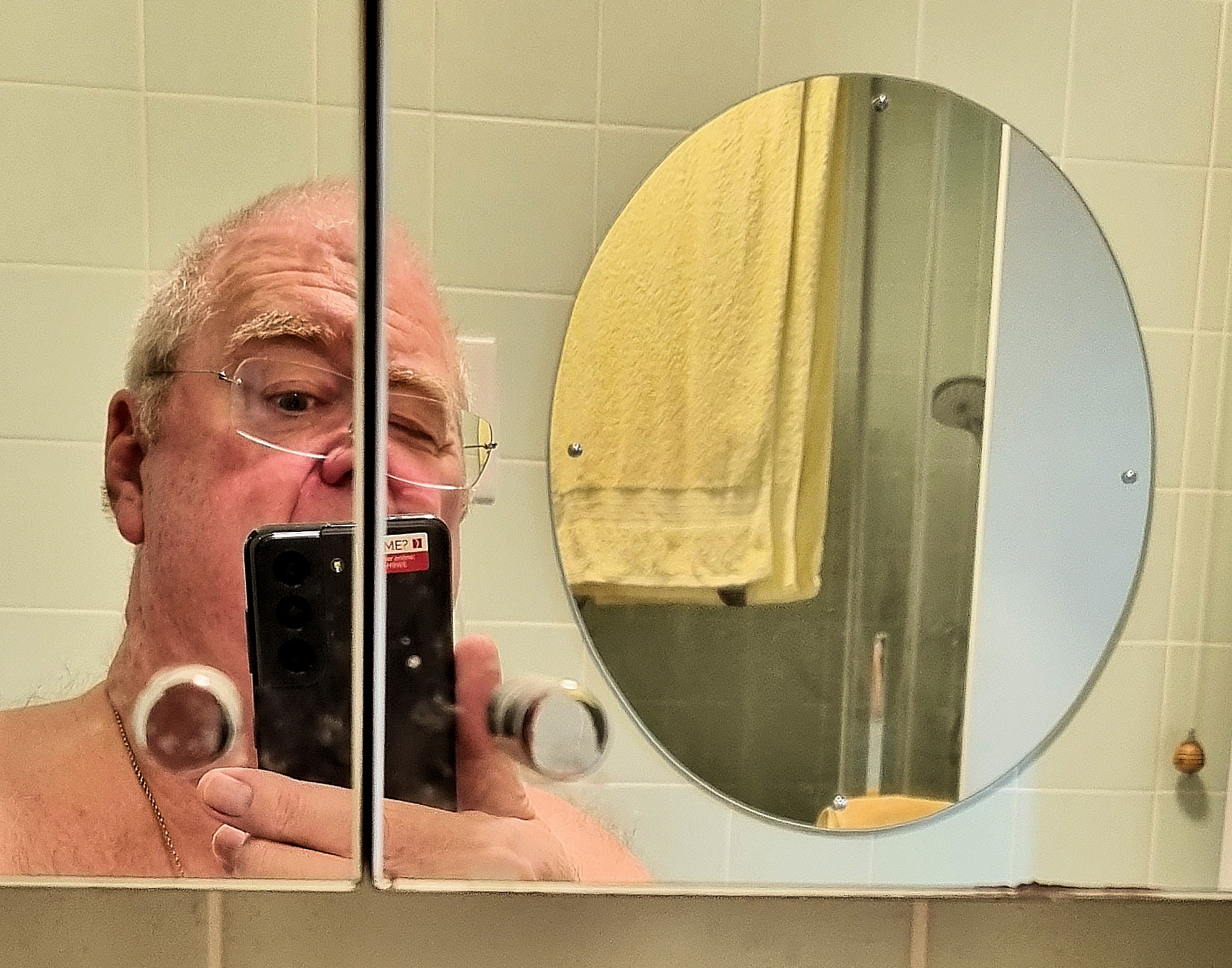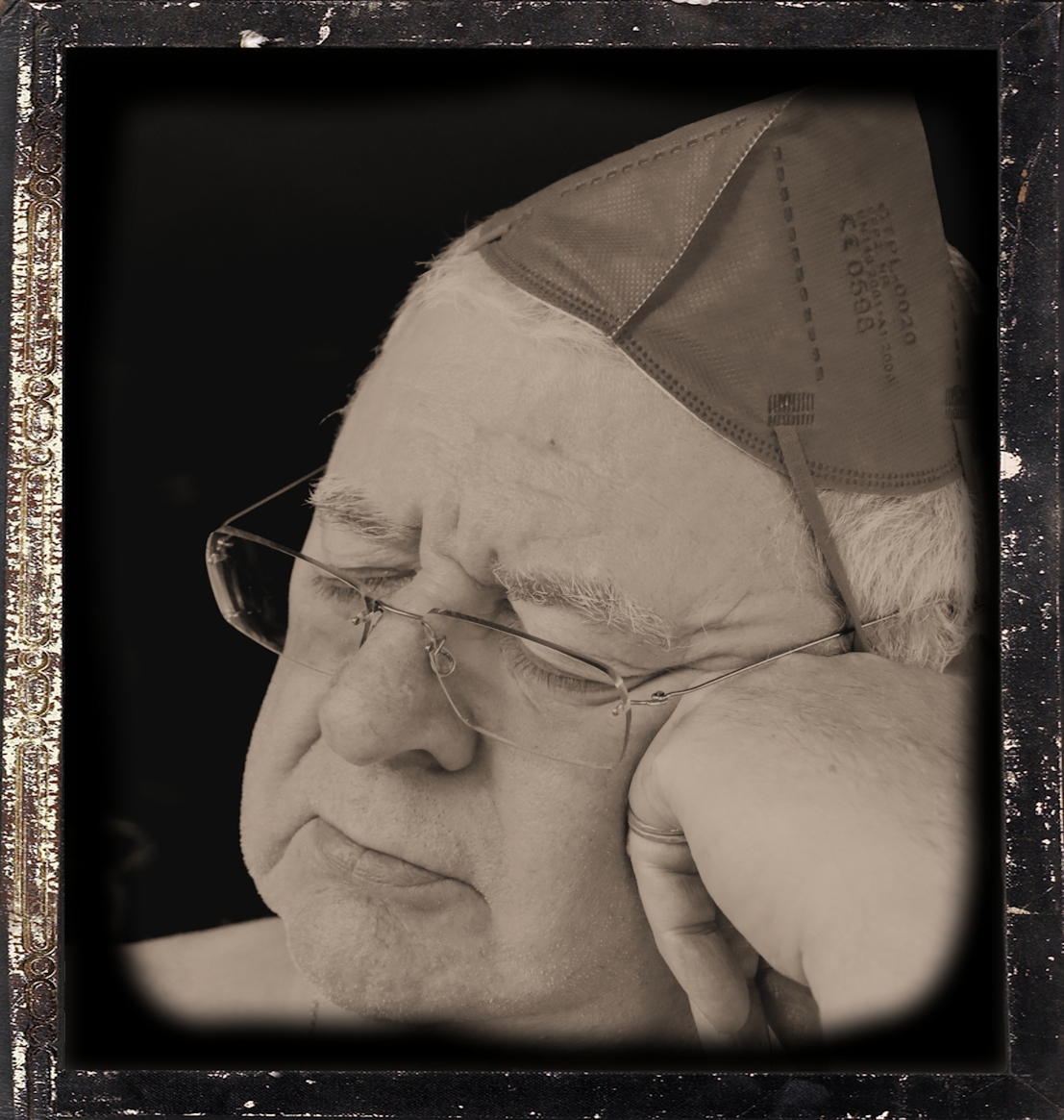
[Click the image for a larger view]
Today, the last Sunday in April, is Worldwide Pinhole Photography Day. I wrote briefly about pinhole photography with this month’s self-portrait. But, of course, I had to have a go on the day itself – especially having made my own pinhole.
Unfortunately the results were less enthralling than I’d hoped, especially as I ran out of steam after bout half an hour. That, though is part of pinhole photography and also a penalty for making your own, imperfectly engineered, pinhole. Anyway here are the two best shots (slightly enhanced for exposure in post-processing).
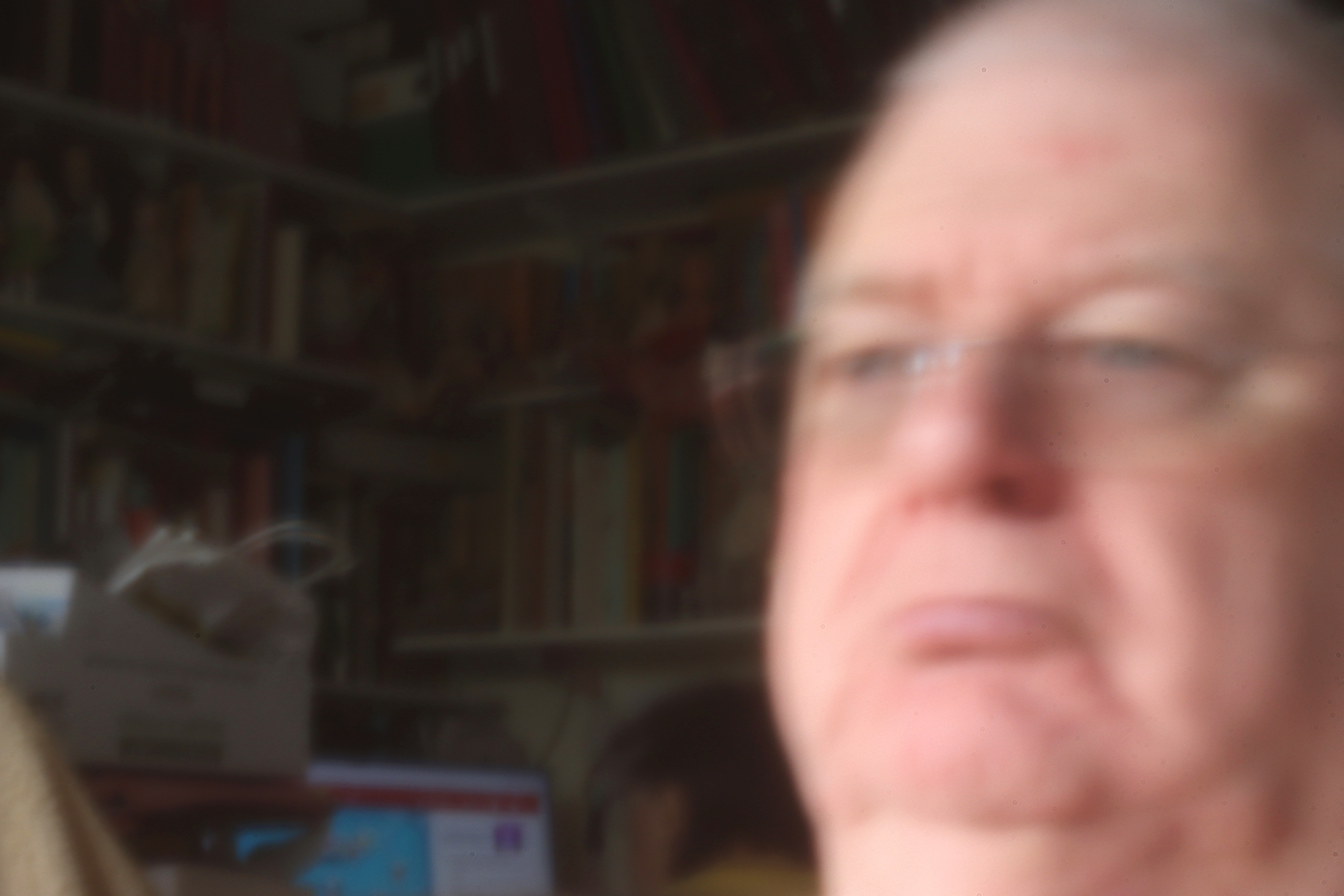
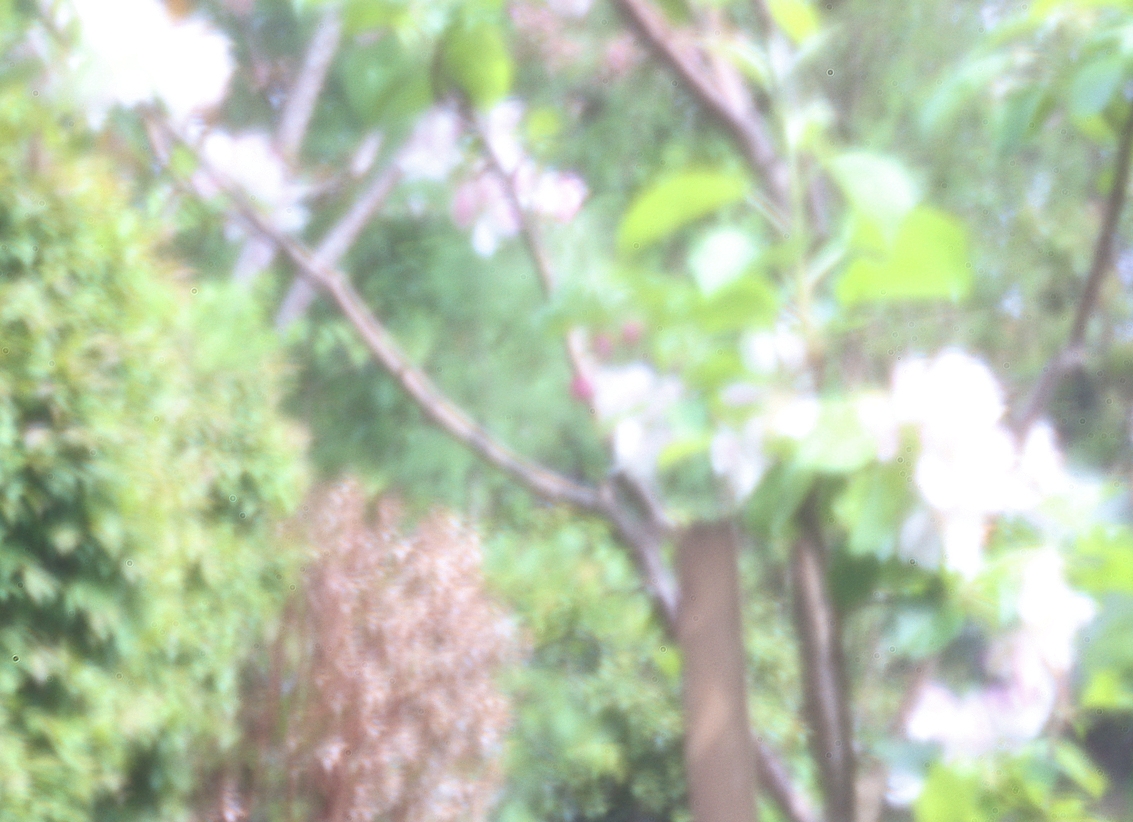
I rather like this impressionist apple blossom.
While these are not top class pinhole photos, when I make up my mind I will probably submit one of these two images to the Worldwide Pinhole Photography Day Gallery.
So here’s this month’s self-portrait. I took this using a pinhole “lens” I made for my Canon dSLR. I actually made three pinholes, which came out slightly different sizes – it’s quite hard to get a really tiny hole. This is the best of them as it is the smallest aperture. This was a 30 second exposure with a fairly slow film speed setting of ISO 200.
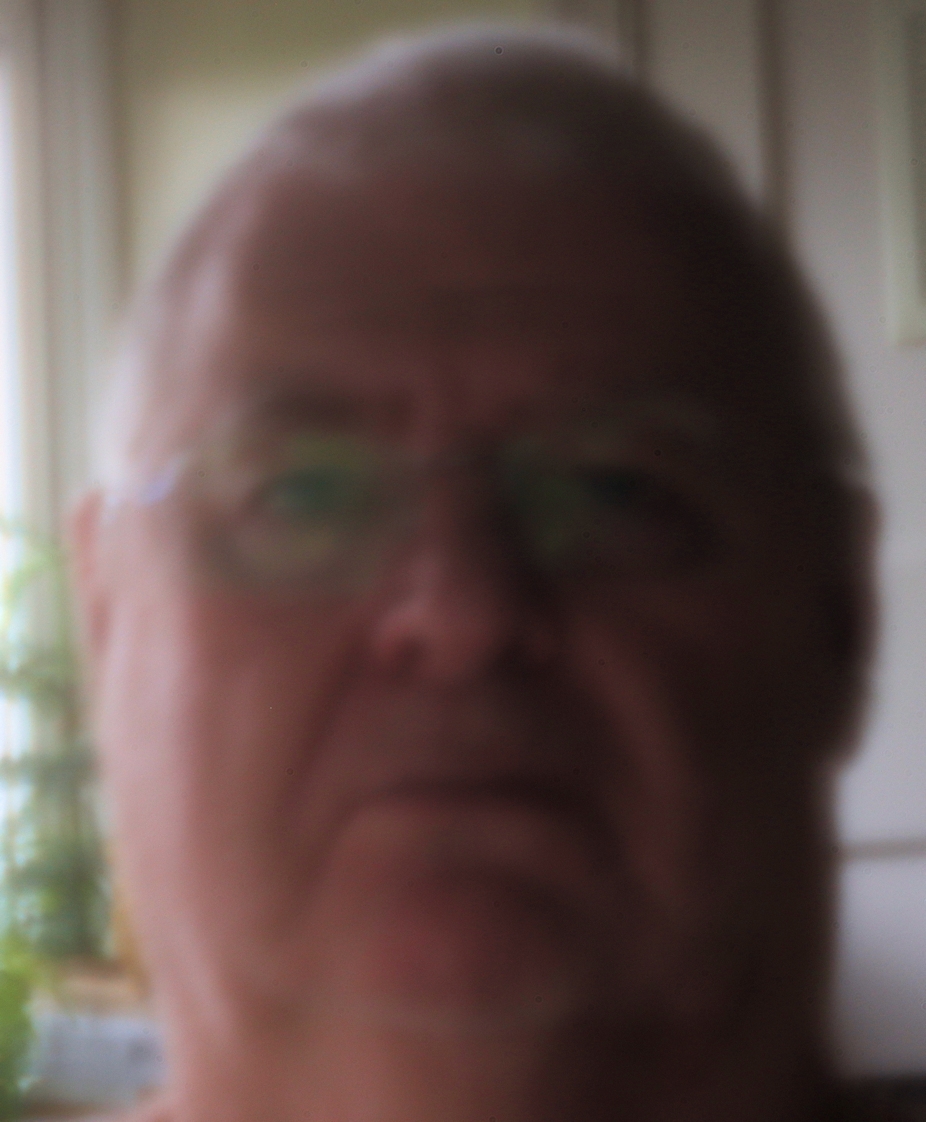
Anyone who wants to try making their own pinhole, I followed this article on wikiHow. It isn’t difficult; if my ten left thumbs can do it then anyone can!
Here’s something else I’m going to try new this year: take a few self-portraits. They may turn out to be interesting, or deadly dull. I don’t know, as it’s not a photographic genre I’ve really had a go at before. They’re not intended to be “selfies” in the popularly understood form, although no doubt they’ll be construed as such. Anyway I’m intending to post one a month. So here’s the first …
